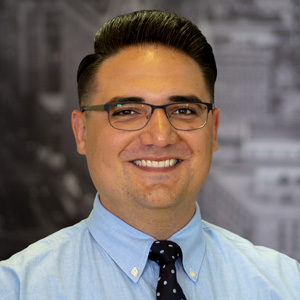By Joseph Castrogiavanni, M.S., MHC-LP
“THUD! … Of course he stopped short! WHY WOULDN’T HE?! I should have seen this coming!”
That’s right, were talking about everyone’s favorite pass time – sorting out a fender-bender. The present accident occurred while attempting to catch a Manhattan bound F train. As I waited to merge, I saw that the coast was clear and the car in front of me began to drive. I took my foot off the break. As my car rolled forward, I glanced to the left to check for oncoming traffic. THUD! That split second was all it took.
Though the accident was benign, my emotional reaction was not. Contrary to what one might expect, my reaction was directed inwardly towards myself. This is because the event triggered a series of memories from an accident that occurred when I was 18 years old. At that time, I was scolded quite harshly by a close relative. The content of his criticism is far less important than the belief I began to endorse: I must not make any mistakes while driving.
The frustration I felt about the accident was logical, but my guilt was dysfunctional. This is because guilt leads me to criticize myself profusely and inhibits my ability to concentrate. Consequently, I was left with two problems: the accident itself and the guilt that derails the pursuit of my goals. Since I had to get to the Albert Ellis Institute, I chose to work on my guilt instead of a time machine to correct my errors.
With that, I set my sights on ameliorating the pesky demand that I was placing on myself (i.e., I must not make any mistakes while driving). The first way that I combated this irrational belief was by grounding myself in reality. The only way to not make ANY mistakes while driving is to never drive. Accidents can and do happen. Making mistakes goes hand in hand with being human. Upon reflection, it occurred to me that this irrational belief was incongruous with my values. Specifically, it leads me to focus on an unrealistic idea of perfection instead of being grateful that no one was harmed.
The guilt that I was imposing on myself was not helping me be a safer driver and it was only serving to make matters worse. I would never condemn a loved one the way that I condemn myself. Therefore, it would be wise to treat myself with the same type of understanding and compassion.
The following question helped guide me toward greater rationality and psychological health: “What would I say to a loved one in this type of situation?” It would clearly be preferable if there were never any car accidents, but accidents can and often do happen. There is no valid reason why I must not make mistakes while driving. This is because fallibility is an intrinsic component of our humanity. With that in mind, I will choose to be conscious while driving, but not condemn myself when the inevitable happens.
In this way we are able to prevent troubling memories from haunting our present and future. Though we cannot change our past, we can change how we think about it. Stay curious my friends.

